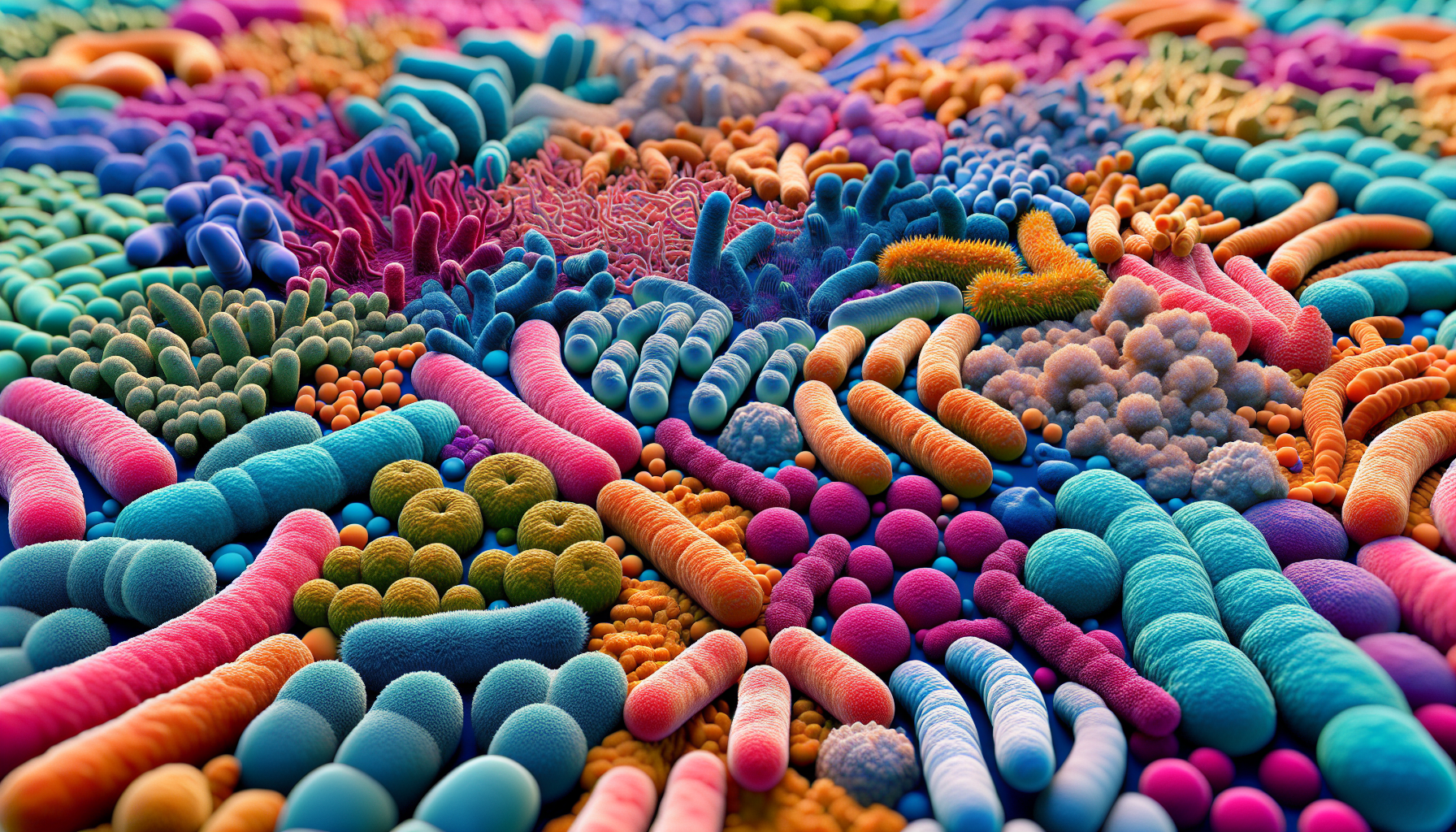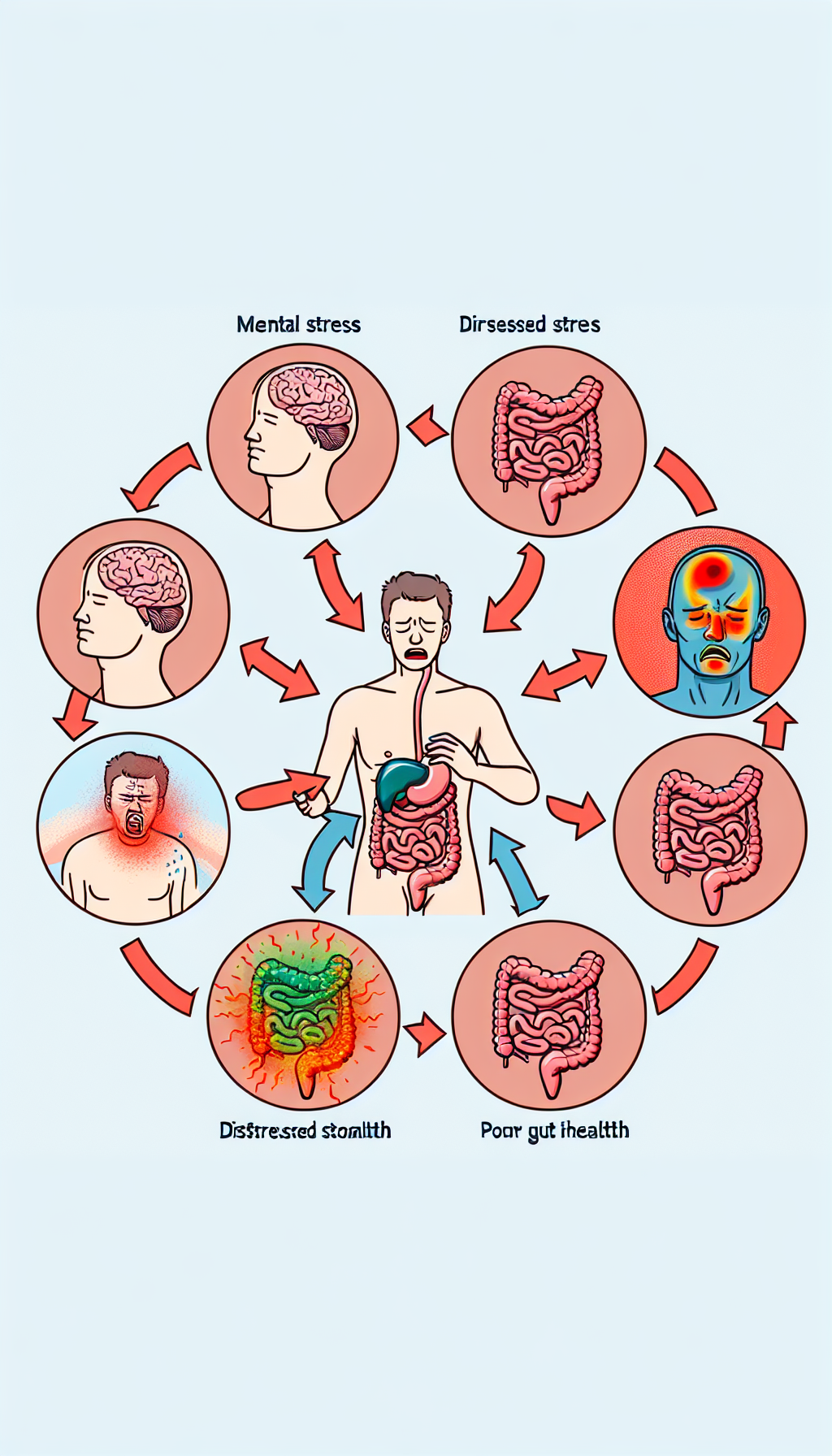The human gut is a complex and dynamic ecosystem, home to trillions of microorganisms that have a profound impact on our overall health. This community of bacteria, known as the gut microbiota, plays a crucial role in digestion, immune function, and even influences mood and behavior. However, the delicate balance of this ecosystem can be disrupted by various factors, one of which is stress. In this article, we will explore how stress affects gut microbiota and, conversely, how the state of our gut health can impact our stress levels.
The Gut-Brain Axis: A Two-Way Street
Recent research has shed light on the intricate communication network between the gut and the brain, known as the gut-brain axis. This bidirectional pathway allows for constant interaction between the central nervous system and the enteric nervous system, the network of nerves within the gut. Stress, whether acute or chronic, can trigger a cascade of hormonal and neural responses that influence gut motility, secretions, and the microbiota itself.
Stress hormones like cortisol can alter the composition and function of the gut microbiota, leading to a less diverse and imbalanced microbial environment. This dysbiosis can affect the intestinal barrier, potentially leading to a condition known as "leaky gut," where harmful substances can enter the bloodstream and provoke an immune response.
Stress and Inflammation: A Vicious Cycle
Inflammation is a natural immune response to injury or infection, but when it becomes chronic, it can be detrimental to health. Stress-induced changes in the gut microbiota can increase the production of inflammatory molecules, exacerbating the body’s stress response and creating a vicious cycle of inflammation and stress.
The inflammatory response can also impact gut motility and secretion, as seen in stress-related digestive conditions like irritable bowel syndrome (IBS). For those suffering from such disorders, managing stress is a key component of treatment, which often includes lifestyle changes and sometimes medication.
The Role of Diet in Gut Health Under Stress
Diet plays a significant role in the composition of the gut microbiota. Foods rich in fiber, for example, can promote the growth of beneficial bacteria. During periods of stress, it’s important to maintain a diet that supports gut health to mitigate the negative effects on the microbiota. Understanding the Benefits of Ketogenic Diet on Gut Flora can provide insights into how specific dietary approaches may influence gut bacteria.
Conversely, a diet high in processed foods and sugars can promote the growth of less favorable bacteria, which can exacerbate the effects of stress on the gut. Incorporating a variety of plant-based foods and probiotics can help maintain a healthy microbiota and potentially reduce the impact of stress.
Exercise: An Ally for the Stressed Gut
Physical activity is well known for its stress-reducing benefits. It’s also beneficial for gut health, as it can increase microbial diversity and improve the integrity of the gut lining. Regular exercise can be a powerful tool in maintaining a balanced gut microbiota during stressful times. For more information on this topic, consider reading How Exercise Promotes Healthy Gut Motility.
Strategies for Coping with Stress to Support Gut Health
In addition to diet and exercise, there are several strategies that can help mitigate the effects of stress on the gut microbiota:
- Mindfulness and relaxation techniques: Practices like meditation, deep breathing, and yoga can lower stress hormone levels and may have a positive impact on gut health.
- Adequate sleep: Disruptions in sleep patterns can affect the gut microbiota. Prioritizing sleep can help maintain a healthy gut ecosystem.
- Social support: Strong social connections can buffer the effects of stress and may indirectly support gut health.
- Probiotics and prebiotics: These supplements can help restore a healthy balance of gut bacteria during times of stress. Advances in Probiotic Therapy for Digestive Disorders offers deeper insights into this topic.
External Resources for Further Reading
To deepen your understanding of the effects of stress on gut microbiota, here are some highly specialized resources:
- A research publication on the National Center for Biotechnology Information (NCBI) website detailing the impact of psychological stressors on the microbiota composition: The Brain-Gut-Microbiome Axis.
- An article from the Harvard Health Blog that delves into the gut-brain connection and how it relates to stress: The Gut-Brain Connection.
- A study from the American Psychological Association (APA) on how managing stress can lead to better gut health: Stress and the Gut Microbiome.
- The Gut Microbiota for Health platform by the European Society of Neurogastroenterology & Motility (ESNM) offers a wealth of information on the topic: Gut Microbiota for Health.
Conclusion
Stress has far-reaching effects on the body, including the gut microbiota. By understanding and managing stress, we can help maintain a healthy and diverse microbial community in our gut, which is essential for overall health and well-being. A combination of diet, exercise, and stress-management techniques can be effective in supporting gut health during stressful periods.
While it’s clear that stress can disrupt the delicate balance of the gut ecosystem, it’s equally important to recognize that by nurturing our gut microbiota, we may also improve our resilience to stress. As we continue to unravel the complexities of the gut-brain axis, it becomes increasingly evident that mental health and gut health are inextricably linked, offering new insights into holistic approaches to healthcare.
For more information on maintaining digestive health and mitigating the effects of stress on your body, explore the resources provided by Avix Health, which offers a comprehensive look at various aspects of digestive wellness.



